Bethlehem, Occupied West Bank, 01 Syawal 1437/06 July 2016 (MINA) – As Muslim families across the world gathered for the last Friday of Ramadan, Sanaa Balbul sat at home alone in her modest two-bedroom apartment.
A mother of three, Sanaa has spent the entire holy month of Ramadan alone, grieving for her family.
“My parents are dead and my husband was killed by Israeli forces eight years ago. His parents have also passed. All of my brothers and sisters have moved out of the country to get away from the occupation, and all of my children are in Israeli prison,” Sanaa told Al Jazeera in her small living room in the occupied West Bank city of Bethlehem.
Also Read: Heavy Rains Flood Tents of Displaced Palestinians in Southern Gaza
Sanaa’s three children were separately arrested by Israeli forces earlier this year. Her 15-year-old daughter, Nuran Balbul, is serving a six-month sentence for allegedly possessing a knife on April 12 at Bethlehem’s 300 checkpoint between the occupied West Bank and Israel. Two months later, on the third day of Ramadan, Israeli forces stormed Sanaa’s house and arrested her other two sons, Mohammed, 25, and Mahmoud, 21. The two men have not been charged with anything.
“The Israelis didn’t tell us why they were arrested or what they suspected them of, and they probably won’t, because they’re being held under administrative detention,” she said, referring to an Israeli policy in which Palestinians can be held without charge or trial for renewable six-month periods.
Sanaa does not believe that her daughter was carrying a knife, noting that she would never have attempted to use one against a person.
“She likes to paint her nails and dance in front of the mirror and do girly things. She is a child and she likes children’s things,” Sanaa said, her voice cracking as tears welled up in her eyes.
Punitive punishment?
Also Read: Death Toll in Gaza Reaches 69,775, Majority Women and Children
The imprisonment of her children has reawakened the pain of her husband’s death, Sanaa said, adding she believes that her family is being targeted as punishment for her late husband’s political activity.
On March 18, 2008, undercover Israeli forces shot dead Sanaa’s husband, Ahmad Balbul, a member of Bethlehem’s city council and the alleged leader of the Fatah movement’s military wing, al-Aqsa Martyrs’ Brigades, in Bethlehem. Ahmad was killed, along with three other Palestinians suspected of being involved in the Islamic Jihad military wing.
Nuran was only eight years old when her father was killed, and was not interested in politics, her mother said. According to Sanaa, Nuran got into a heated argument with Israeli soldiers at the checkpoint where she was arrested, after which they searched the 15-year-old’s bag and allegedly found the knife.
“I think they got into that argument, and the Israelis checked her ID and found out who her father was, so they put that knife on her to arrest her,” Sanaa said.
Also Read: Israel Urges Indian Jews to “Return” to Zionist-Occupied Territories in Palestine
An Israeli army spokesperson did not respond to Al Jazeera’s request for comment on the case.
Sanaa has seen her daughter only once since her arrest, at the court hearing where she was found guilty of an attempted stabbing attack and sentenced to six months in an adult Israeli prison. A month after her detention, Nuran secretly sent a letter home to her mother through another prisoner who had been released.
“Kids in the prison have tired hearts, the situation makes me sad, I keep praying for them,” the letter reads. “… Prison isn’t sweet, I wish I could be there with you right now, I hope to be released before Ramadan so I can spend Eid with all of you.”
But as her mother and brothers prepared to start the month-long holiday of fasting without her, Israeli forces detained Sanaa’s other two children.
Also Read: UNRWA: 90% of Gaza’s Population Depends on Humanitarian Aid Amid Israeli Restrictions
“My oldest son was staring out the window when he saw Israeli forces outside,” Sanaa said. “It was the middle of the night and he realised our home was being surrounded. He told me to go change because the soldiers were coming. A moment later, they blew down our door and came storming in with their dogs.”
Once she realised that the soldiers planned to take both her sons, Sanaa said, she begged them to arrest her as well.
“I told them to take me to my daughter; I would rather be in prison with her than home in this house alone – to stay here for what? I have nothing here. There is no reason to live in this home alone … I just sit and look at their photos online,” she said.
The night raid was the second time her eldest son, Mohammed, was arrested by Israeli forces. When he was 17, Mohammed was held without charge or trial for a year before being released. Scared that he could meet the same fate as his father, Sanaa later sent him to Egypt to study.
Also Read: Two Million Israelis Face Looming Mental Health Crisis Amid Gaza War
“It was a hard decision, but I just wanted him to be safe and have a chance to make something of his life,” she said.
Mohammed studied dentistry for six years in Egypt before he came home a year ago and opened a dental practice in Bethlehem. “He said he knew how much I had sacrificed to put him through school, so he came home to support our family,” Sanaa said. “He wanted to save money to build us a home. This one is very old and small.”
Her other son, Mahmoud, has been studying to obtain a bachelor’s degree in psychology. Mohammed’s fledgling dental practice was the sole source of income for the family of four.
Sanaa is not sure how she will survive her children’s detention. While she has started teaching Arabic at a small language office in Bethlehem, the income is not enough. She worries for her children, who need money to pay for their personal needs in prison.
Also Read: US-Backed Gaza Aid Group Ends Mission Amid Controversy Over Delivery and Safety
“I have no money to send them,” Sanaa said, tears flowing down her face. “This Ramadan has been a month of mourning for me, not a celebration. Everything seems to be bad right now; I am just barely holding on.” (T/R07/R01)
Mi’raj Islamic News Agency (MINA)
Also Read: Israel Allows Only One-Third of Agreed Aid Trucks Into Gaza





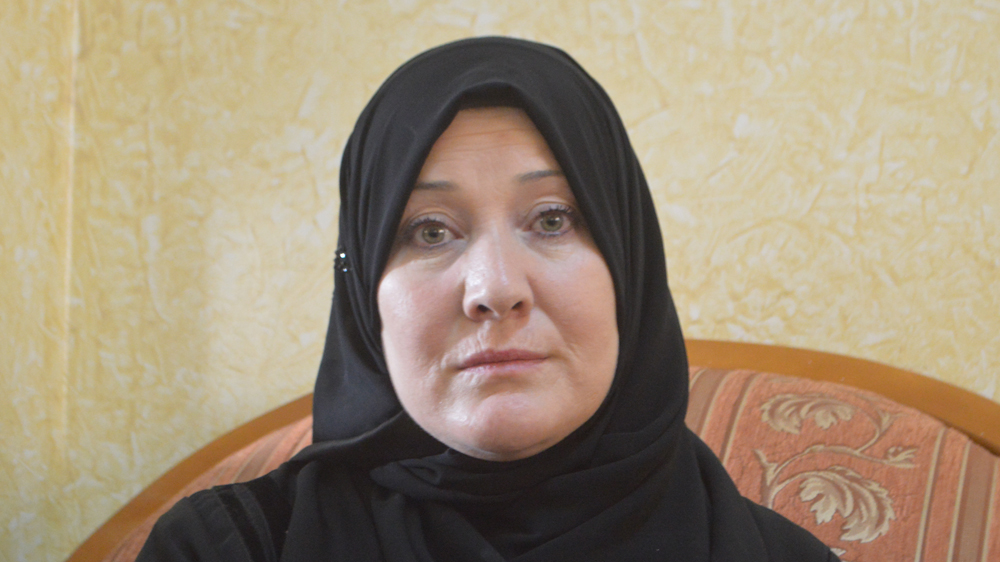



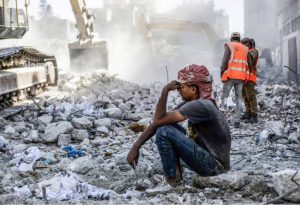



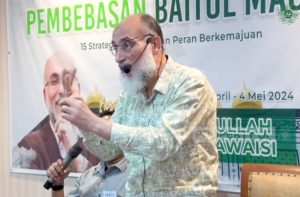
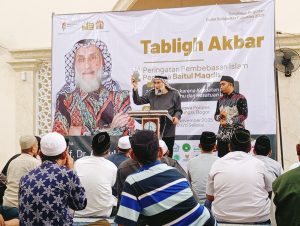

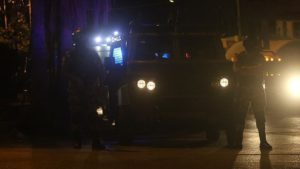
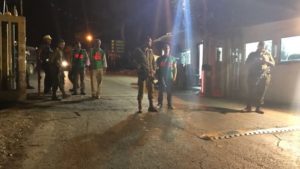
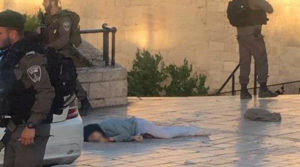
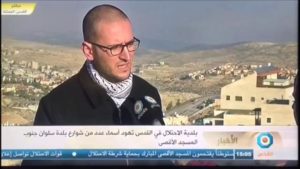
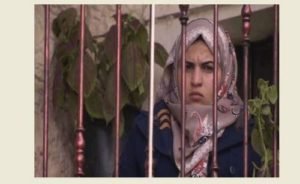












 Mina Indonesia
Mina Indonesia Mina Arabic
Mina Arabic